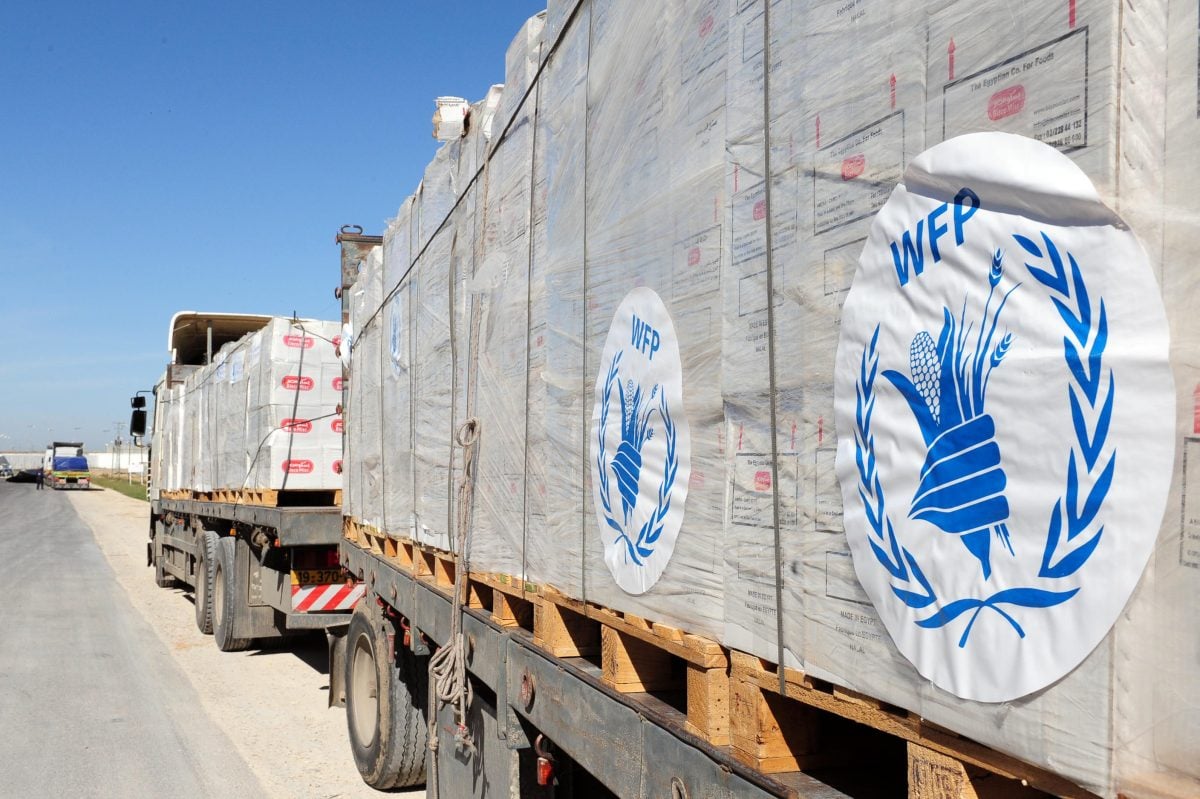The 2020 Nobel Peace Prize has been awarded to the United Nations World Food Programme (WFP) for “for its efforts to combat hunger, for its contribution to bettering conditions for peace in conflict-affected areas and for acting as a driving force in efforts to prevent the use of hunger as a weapon of war and conflict.”
The judges of the Swedish prize lauded the WFP’s efforts in providing assistance to almost 100m victims of acute food insecurity and hunger around the world, and highlighted the organisation’s ongoing work in Africa.
“The coronavirus pandemic has contributed to a strong upsurge in the number of victims of hunger in the world. In countries such as Yemen, the Democratic Republic of Congo, Nigeria, South Sudan and Burkina Faso, the combination of violent conflict and the pandemic has led to a dramatic rise in the number of people living on the brink of starvation. In the face of the pandemic, the World Food Programme has demonstrated an impressive ability to intensify its efforts,” said the committee.
This year’s award of the Nobel Peace Prize to the world’s largest humanitarian organisation focused on hunger and food security is likely to be uncontroversial. Last year’s prize was given to Ethiopian prime minister Abiy Ahmed for his attempts at political reform and regional peace-making with neighbouring Eritrea. However, since the award, Ethiopia has been rocked by bouts of separatist violence, allegations of government repression and concern over the future of Abiy’s reform agenda.
Covid and conflict add to Africa’s food strain
The Prize comes at a time when Covid-19 has put Africa’s food systems under added strain. In 2019, 135m people worldwide suffered from acute hunger. Some 20% of Africa’s population is facing severe food insecurity as climate change and conflicts take their toll.
Meanwhile, African policymakers have largely adopted the mantra of “trade not aid” and are encouraging businesses to play a much more active role in agricultural development and food security. The African Development Bank’s Feed Africa Strategy, which aims to end hunger and malnutrition on the continent by 2025, aims to “make Africa a net food exporter and move Africa to the top of export‑orientated global value chains where it has comparative advantage.”
Despite the gradual introduction of the plans – experts say the continent’s agricultural supply chains have held up relatively well under the pressure of Covid-19 – the Nobel judges highlighted the urgent necessity of continued financial support for emergency organisations like the WFP.
“The world is in danger of experiencing a hunger crisis of inconceivable proportions if the World Food Programme and other food assistance organisations do not receive the financial support they have requested.”
The judges also highlighted the necessity of ending conflicts as a prerequisite for ending food insecurity.
“The link between hunger and armed conflict is a vicious circle: war and conflict can cause food insecurity and hunger, just as hunger and food insecurity can cause latent conflicts to flare up and trigger the use of violence. We will never achieve the goal of zero hunger unless we also put an end to war and armed conflict.”
Want to continue reading? Subscribe today.
You've read all your free articles for this month! Subscribe now to enjoy full access to our content.
Digital Monthly
£8.00 / month
Receive full unlimited access to our articles, opinions, podcasts and more.
Digital Yearly
£70.00 / year
Our best value offer - save £26 and gain access to all of our digital content for an entire year!
 Sign in with Google
Sign in with Google 



